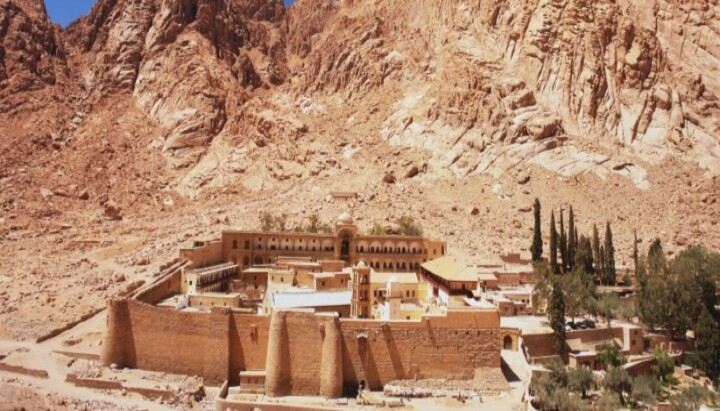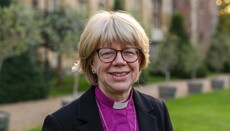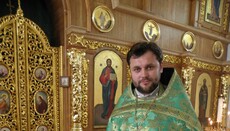Greek, Egyptian Officials Hold Discussions on St. Catherine’s Monastery

The two sides agreed to work towards securing the rights of the monastery and its legal status, Greek Foreign Minister George Gerapetritis said.
CAIRO — Conversations were held between Greek Foreign Minister George Gerapetritis and Egyptian Foreign Minister Badr Abdelatty in Cairo, Egypt, on Wednesday regarding the legal status of the historic St. Catherine’s Monastery.
This meeting was held in the shadow of a court ruling last week that caused uncertainty amongst the monastics, hierarchs and faithful at large who wish to see the longest continually-inhabited monastery in the world remain a living witness to asceticism and ancient monastic practice.
Founded in the sixth century by Emperor Justinian, the monastery is located at the foot of Mount Sinai, where Moses received the Ten Commandments, and is the home of the burning bush (Exodus 3) and an extensive library which contains some of the oldest Christian manuscripts. The librarian, Fr. Justin Sinaites, is a former Southern Baptist from Texas who converted to Orthodoxy.
It is also a UNESCO World Heritage site and contains a document from none other than Mohammed, the Prophet of Islam himself, granting personal protection to the monastery during Muslim rule, signed with the print of his hand.
The court ruling in question dealt with plots of land adjacent to Saint Catherine’s that monks have used for years.
In 1980, the monastery submitted 71 declarations of land ownership to the Egyptian government – land that was used for gardens, chapels, and more – and 45 years later is still waiting to be granted ownership.
Over the years, the situation regarding the land ownership has been in a state of flux, with a 2015 lawsuit by the South Sinai Governorate disputing the monastery’s claims to the 71 sites.
This in-between state of stewardship rather than ownership came to a head with last week’s court decision and resulted in a special diplomatic meeting between Greek and Egyptian government officials.
"We agreed in the immediate future to work towards safeguarding the rights of the monastery, as well as its legal status," Greek Foreign Minister George Gerapetritis told Reuters after the meeting.
In a statement from Egyptian Foreign Ministry, Egyptian Foreign Minister Badr Abdelatty said that “the ruling preserves the monastery’s profound spiritual value and religious standing, and confirmed that the monks would continue to have access to and use of the monastery and its religious and historical sites.”
In statements made during the consultation by President Abdel Fattah el-Sisi and the Egyptian government, a commitment to ensure the Greek Orthodox character of the monastery and the unhindered continuation of the monastery’s operations was reaffirmed.
According to reporting from the National Herald, “the Greek delegation urged the Egyptian authorities to work toward preserving the status quo and ensuring the monastery’s continuity – something that cannot be achieved, they stressed, if the surrounding land is removed from its control.”
The specific matter of property ownership is expected to be addressed in a subsequent phase. Despite affirmations from the Egyptian government and attempts to describe the court case as a win for the monastery, the point remains – the Egyptian government has yet to clarify the status of land ownership in any meaningful way.
Previously, UOJ reported on the history of the monastery’s legal status and why this issue should be of the utmost importance to Orthodox Christians around the world.









